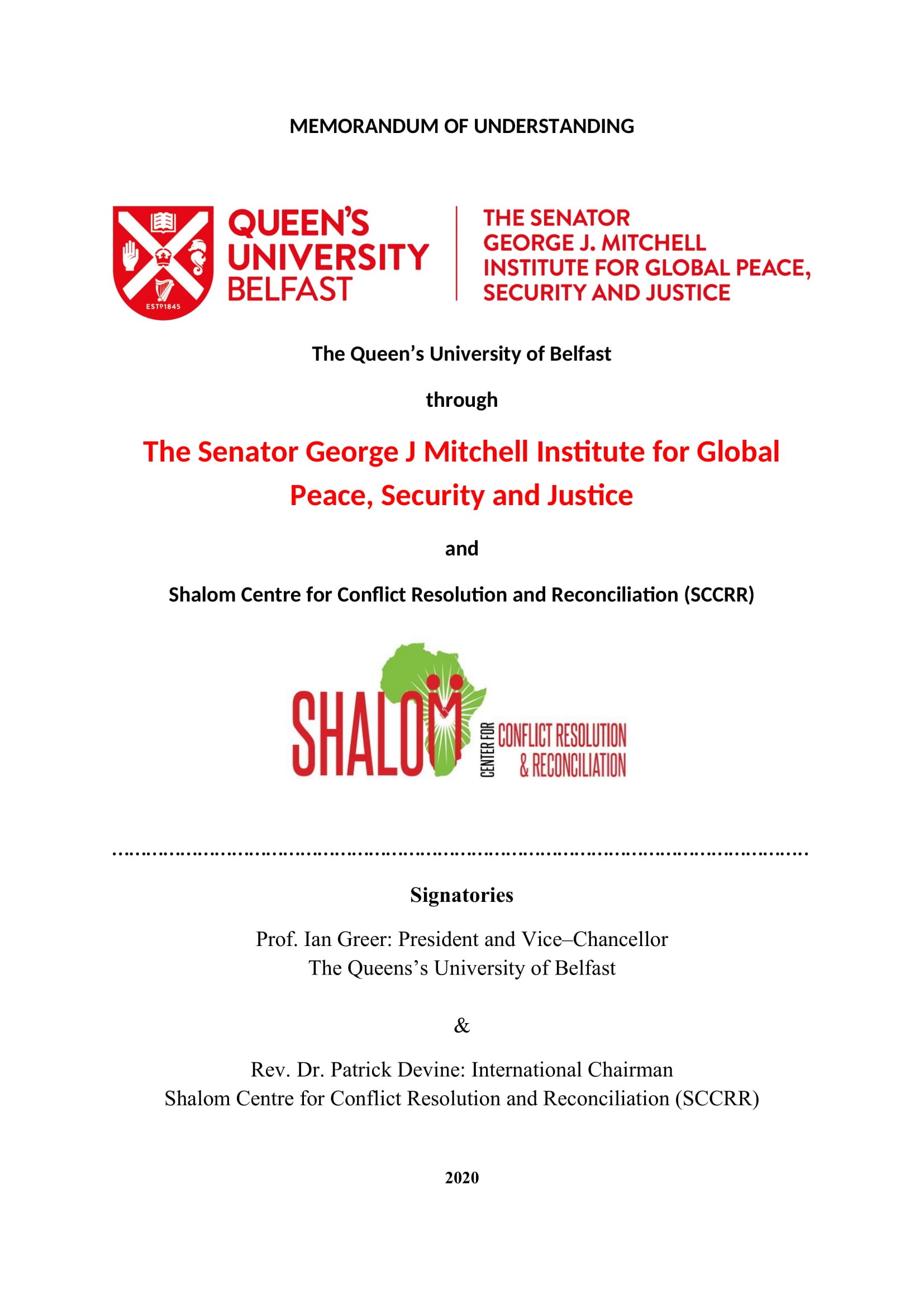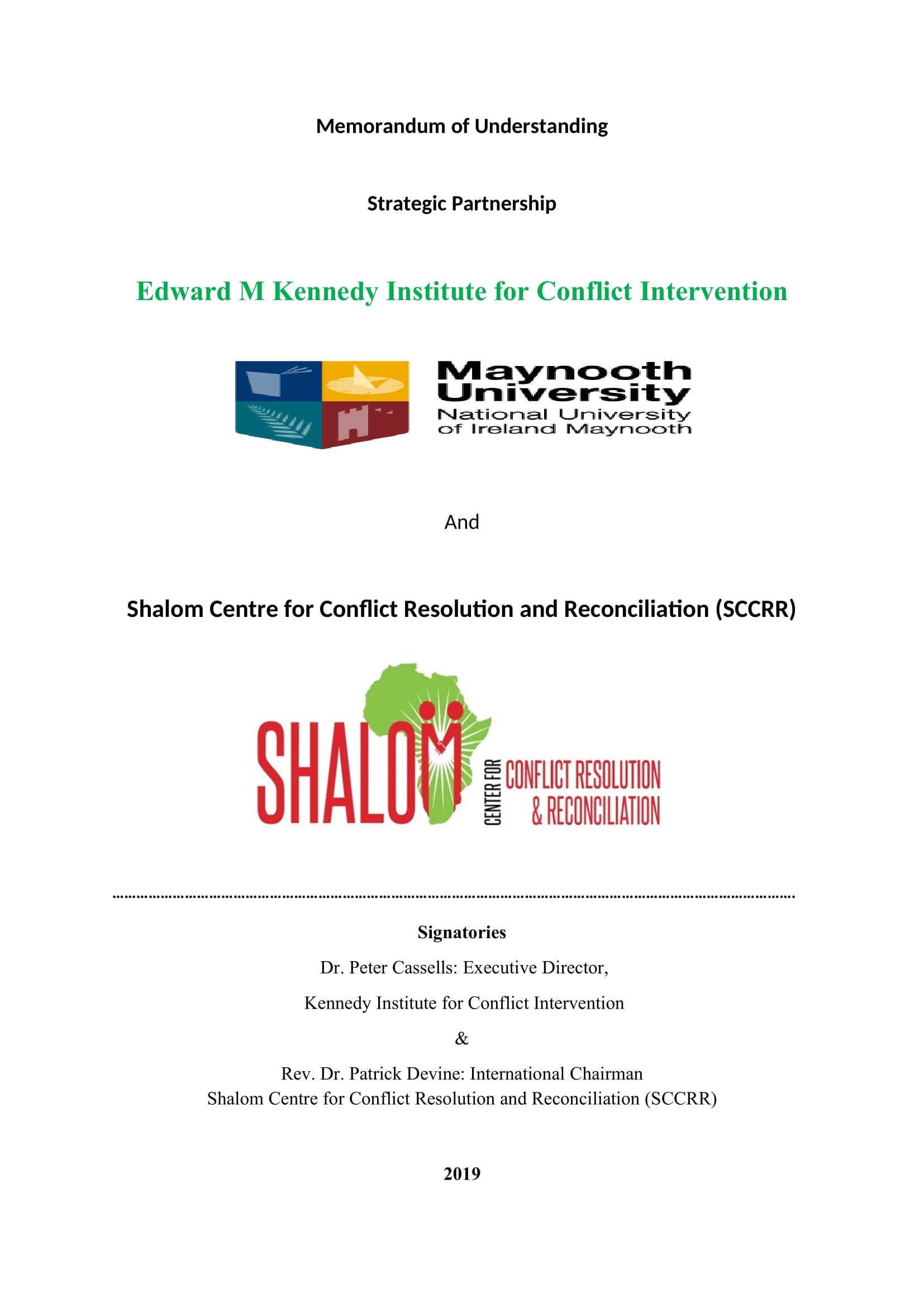
The experience of conflict typically brings issues of political authority, security, society, and economy to the fore, albeit in different ways and places. The issues usually entail two questions to be addressed. They are: 1) how to establish political authority either after violence (war) or in the face of perennial localized intercommunal violent conflict occurrences, and 2) what to do about livelihoods as a result of conflict. These questions have been addressed in a myriad of different ways in locales in Africa and Europe, as well as the world beyond these continents over time.
It has been said that since the publication in 1992 of An Agenda for Peace — a UN document by Boutros Boutros – Ghali (the first person from Africa to be the UN Secretary-General) — Africa has become the world’s most important peacebuilding laboratory. In this connection, Shalom Centre for Conflict Resolution and Reconciliation (SCCRR), by virtue of its being located in Africa, has established its expertise and, hence, credibility in the area of peacebuilding in the African region of the world, particularly the eastern part of the continent. Edward M. Kennedy Institute for Conflict Intervention and The Senator George J. Mitchell Institute for Global Peace, Security and Justice both located in Europe, parallel SCCRR in terms of Peacebuilding effort (initiatives and activities). SCCRR and the Institutes are tied together by a common interest (conflict) and a common theme (Peacebuilding).
There is no universal paradigmatic approach to peacebuilding. Within parameters of the common theme of moving from negative peace (the absence of physical violence) to positive peace (the virtual, if not absolute, absence of injustice and inequity or structural violence) SCCRR and the Institutes will attempt from varying/similar (if not same) perspectives that pertain to the historical, the political, the economic, the social, and the religious to address conflict realities and how to move from negative to positive peace. That is, their interaction (=exchange of information, knowledge and experiences) in terms of the above key areas of conflict transformation-peacebuilding will be mutually beneficial to them in both theory and practice.
By way of illustration, it is realistic to have high expectation that the interaction will, inter alia, result in Shalom/Institute seeing some aspect of conflict/peacebuilding which it had not seen hitherto, compare it with some aspect it has seen before, thereby enlarging understanding of conflict dynamics and augmenting practicable peacebuilding knowledge that may translate to informing policy. Besides, it will likely enhance appreciation or recognition that practical exploitation (=use of) of a conflict transformation-peacebuilding strategy/tactic which is directly and undoubtedly devised by local peace builders in a conflict-prone environment in Africa or Europe and the world beyond Africa/Europe does not necessarily take place in the environment (=institution on/place/country) where it was initially devised.
By
Prof. Wanakayi K. Omoka, PhD
Shalom- SCCRR Director of Research

************************************************************************


